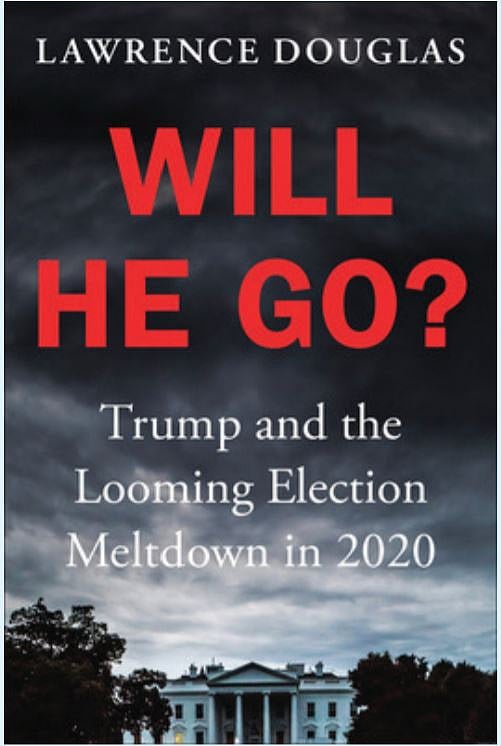What if Donald Trump refuses to leave the White House after the election?
Donald Trump has said he will not accept defeat. And unless he is comprehensively beaten, the US could face a Constitutional crisis later this year

The US Presidential elections are both clumsy and complex. There are popular votes and there is the electoral college. Votes of 271 electors are required to win the Presidency and a candidate can win or lose in popular votes but that may not matter. While popular votes are counted in November, the electors meet in state capitals a month later.
In the last Presidential election in 2016, Donald Trump lost to Hillary Clinton in popular votes but went on to secure the support of 306 of the 538 members of the electoral college. This had happened before, the last time in 2000 when Al Gore lost narrowly to George Bush.
And if the 2016 presidential election was nasty, the election in 2020 promises to be nastier. If the last Presidential election was marred by charges of rigging and interference by Russia backed agencies, this year’s election promises to be more vicious, more chaotic and with a large number of Americans likely to vote through postal ballots in view of the pandemic, the White House is already speaking of a rigged election.
“There is NO WAY (ZERO!) that Mail-In Ballots will be anything less than substantially fraudulent. Mail boxes will be robbed, ballots will be forged & even illegally printed out & fraudulently signed … This will be a Rigged Election. No way!” tweeted US President Donald Trump recently, surprising nobody.

In this backdrop the book by legal scholar and Professor Lawrence Douglas has caused ripples. What if Donald Trump loses the election narrowly to Joe Biden but refuses to concede or, worse, leave the White House? Although the Professor concedes that Trump may just be persuaded to boycott the Inauguration of his successor if he loses, nobody can rule out the possibility that he will challenge the result, take it to the Congress and refuse to leave the White House.
Professor Douglas says that there is nothing in the US statutes and the Constitution to ensure a peaceful transition in such a deadlock. The book seeks to answer the following questions: What legal and extra-legal paths could Trump pursue in mobilising a challenge to the electoral outcome? What legal, political, institutional, and popular mechanisms can be used to stop him and what would be the fallout of a failure to remove him from office?
“The Obama administration,” said Douglas to an interviewer, “was prepared to deal with a candidate challenging the results of the election. But if you have an incumbent doing that, that’s a far more dangerous situation, because that really represents a challenge to peaceful succession.”
He went on to declare, “There’s nothing in our laws and Constitution that really guarantees or secures it. What guarantees and secures it is the behavior of candidates. They have to sign onto the norms of the democratic process. That’s what you saw in 2000 when Al Gore lost the presidency by 537 votes. He chose not to push the issue.”
The COVID crisis, he feels, makes a disputed outcome in 2020 all the more likely. With a record number of Americans voting by absentee ballot— ballots that Trump has already sought to discredit and dismiss as vulnerable to fraud, a narrow electoral defeat of Trump will be contested.
The United States in 2020 is more divided than ever before. The moniker used for Narendra Modi by Atish Taseer, ‘Divider-in-Chief ’, is equally applicable to the US President. Indeed different polls, and Americans suckers when it comes to polls, indicate that Donal Trump has broken more homes than any other President in recent memory
A survey quoted Jennifer Merill explain that she put an end to her 24-- year old marriage because her husband’s support of the President came as the last straw. She moved out and filed for divorce. “I just couldn’t see sharing a bed with somebody that agreed with what Trump was doing when I was so against everything that Trump represented,” says Merrill, a book editor for a trade association, and the mother of three children.
She is among 11% of Americans who have ended a serious relationship due to political differences, according to a 2017 poll. One in five Americans say they know a couple whose marriage or relationship has been negatively affected by President Trump’s election. Wakefield’s research found that 1 in five couples now argue more about Trump than they do about money.
The same study found that 22% of Americans in their 20s and 30s report breaking up with someone over political differences. And almost 1 in 3 millennials say they know a couple whose marriage has been negatively affected by President Trump’s election.
Follow us on: Facebook, Twitter, Google News, Instagram
Join our official telegram channel (@nationalherald) and stay updated with the latest headlines
